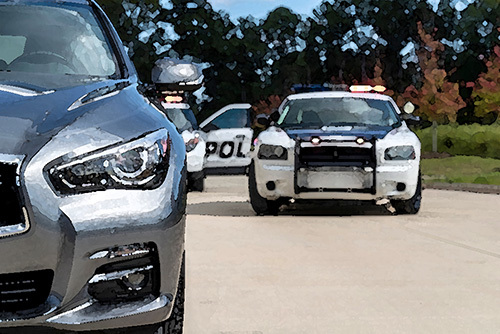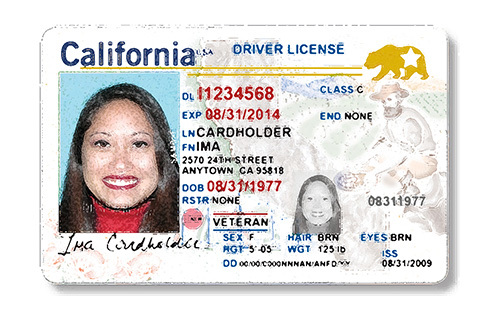A second offense DUI conviction in California carries these misdemeanor penalties:
- A “mandatory minimum” of 96 hours to a maximum of 1 year in jail,
- A fine of $390 to $1,000, plus penalty assessments (which can take the total to nearly $2,000),
- 3 to 5 years of summary probation, including a requirement to avoid other criminal behavior,
- A 2nd Offender DUI school (SB38) that lasts 18 or 30 months, and
- An ignition interlock device (IID) in your vehicle for 1 year.
In addition, courts may require that you:
- Attend Alcoholics Anonymous (AA) or Narcotics Anonymous (NA) meetings,
- Attend the Mothers Against Drunk Driving (MADD) Victim Impact Panel, and/or
- Pay restitution to any accident victims.
Sentencing terms may vary depending on which county your case is in. You also may be able to do community service if you cannot afford the fines.
California law imposes harsher penalties for each prior DUI conviction. This chart compares the penalties of a first DUI, second DUI, and third DUI.
| CALIFORNIA PENALTIES | 1st DUI in 10 years | 2nd DUI in 10 years | 3rd DUI in 10 years |
| Jail | Up to 6 months | 96 hours to 1 year | 120 days to 1 year |
| Informal Probation | 3 to 5 years | 3 to 5 years | 3 to 5 years |
| Fines | $390 to $1,000 | $390 to $1,000 | $390 to $1,000 |
| License Suspension | 6 or 10 months | 2 years | 3 years |
| Ignition Interlock Device | 6 months | 1 year | 2 years |
| DUI School | 3 or 9 months | 18 or 30 months | 30 months |
In this article, our California DUI lawyers address the following:
- 1. Will I lose my license?
- 2. What factors increase the punishment?
- 3. Will I have a permanent criminal record?
- 4. Can a DUI-2nd be reduced?
- 5. How do I fight the charges?
- Additional Resources
1. Will I lose my license?
If you are arrested for a second DUI in California, there is a way to continue driving. This is to allow the installation of an ignition interlock device (IID) breathalyzer in your vehicle(s) for one year.
If you do not get an IID, your license will remain suspended for two years. The only way to avoid a suspension period is to win both:
- Your criminal case, which is prosecuted under Vehicle Code 23152 (a) and (b), and
- Your DMV hearing, which is an administrative trial entirely separate from your criminal case.
If you lose your DMV hearing – or you fail to request one within 10 days of your DUI arrest – the Department of Motor Vehicles will suspend your driving privileges even if your criminal DUI charge gets dismissed.
The reverse is true as well. Even if you win your DMV hearing, your license will still be suspended if you get convicted of driving under the influence in criminal court.1
This is why it is so important to have an experienced DUI defense attorney fighting for you both in criminal court and at the DMV hearing.

A second-time drunk driving conviction can sometimes be reduced to a reckless driving.
2. What factors can increase the punishment?
Aggravating factors that can lengthen your California jail or prison sentence for a second-time DUI include:
- Having a blood alcohol content (BAC) of 0.15% or higher (less in some counties),2
- Refusing to submit to a chemical test,3
- Causing an accident,4
- Being a minor under 21 at the time of your drunk driving offense,5
- Driving at excessive speeds, and/or6
- Having children under the age of 14 in the car (also known as Penal Code 273a child endangerment).7
3. Will I have a permanent criminal record?
You can get a second drunk driving conviction expunged from your California criminal record as long as:
- you were placed on probation and
- you were discharged from probation after completing all your DUI penalties.
To ask for an expungement, you file a petition with the court. If the judge grants it, you may withdraw your plea of guilty or no contest and enter a plea of “Not Guilty.” At this point, your case should be dismissed and record expunged.

Unlike with first offense DUI convictions, courts must impose mandatory jail time for second DUI convictions.
4. Can a DUI-2nd be reduced?
Depending on the strength of your case, California prosecutors may be willing to plea bargain your DUI-2nd charge down to either a:
- wet reckless – reckless driving involving alcohol,
- dry reckless – reckless driving not involving alcohol, or
- exhibition of speed (“speed ex”) – accelerating in an unsafe manner to draw other’s attention.
Like drunk driving, these traffic crimes are also misdemeanors. However, they carry:
- laxer penalties,
- no mandatory driver’s license revocation, and
- a lesser stigma, which increases your professional and housing possibilities.
Prosecutors rarely offer these plea bargains unless we can convince them there is “reasonable doubt” in your case. We often find “reasonable doubt” by conducting our own investigation, which may turn up instances of police misconduct.
5. How do I fight the charges?
A lot goes into creating an effective drunk driving defense. Some of this may need to be done within hours after your arrest. Our criminal defense lawyers’ strategies involve the following:
Collecting and Analyzing Evidence
This includes subpoenaing witnesses that may support your case. It also includes obtaining law enforcement dashcam video of your stop and any accompanying audio recordings.
For example, let’s say an officer claims they stopped you because you did not have a front license plate. Then we prove the officer never had a glimpse of the front of your vehicle prior to the stop. This may damage the officer’s credibility and cause your case to be dismissed.
Legal Research and Writing
After collecting and analyzing all the evidence, we use it as the basis for putting together written motions in support of your case.
For example, let’s say you believe the officers unfairly targeted you or treated you in an inappropriate manner. Then we would file a “Pitchess Motion” to let us dig up dirt in the officer’s personnel file. This may give us more ammunition to fight your case.
Plea Bargaining
The overwhelming majority of our cases settle because we conduct our own investigation and file pre-trial motions. All our work on the front end often persuades prosecutors that their case is not strong enough to take to trial.
Our criminal defense attorneys’ aggressive and strategic settlement discussions may help to get you a dry or wet reckless conviction rather than a drunk driving one.

Whereas a first-time DUI carries a 6-month license suspension, a subsequent DUI carries a two-or-more-year license suspension.
Additional Resources
For more information, our DUI attorneys suggest you refer to the following:
- Substance Abuse and Mental Health Services Administration (SAMHSA) – 24/7 hotline for people suffering from addiction or mental health problems.
- Drunk Driving Overview – NHTSA page on drunk driving statistics and prevention.
- Impaired Driving: Get the Facts – CDC fact sheet on impaired driving.
- Driving Under the Influence – California DMV page on driver license suspension and other DUI laws.
- American Addiction Centers – Provider of treatment for addiction.
Legal References
- California Vehicle Code 23540.
- California Vehicle Code 23578.
- Same. See also California Vehicle Code 23577. In addition, Vehicle Code 13353 permits the DMV to suspend your driver’s license for multiple years when dealing with a second offense DUI in California.
- Many counties will impose an additional county jail sentence if you caused an accident on your second time DUI in California, even though the accident did not result in injury.
- If you are under 21 at the time of your second time DUI conviction in California, you will additionally be convicted of Vehicle Code 23136 (a civil offense under California’s zero-tolerance policy) and of an infraction under Vehicle Code 23140 (driving with a BAC of 0.05% to 0.07%).
- California Vehicle Code 23582.
- California Vehicle Code 23572 — DUI sentencing. Conviction of violation of Vehicle Code 23152; minor in vehicle; enhanced punishment. See also California Penal Code 273a.
